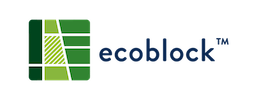The EcoBlock team has been participating in the NorCal Resilience Network’s Resilience Hubs Leadership Training Program since February. This year, the Network brought together 52 sites, 275 community leaders and 16 government partners to co-create Resilience Hubs—community spaces throughout the Bay Area that provide essential services including power, shelter, food and medicine, and enable residents to be “ready for everything” from extreme weather events to power outages and public health crises.
Helping People and the Planet
Resilience Hubs provide critical services and resources before, during and after a disaster. NorCal Resilience Network’s Hub initiative follows a model of “people-powered, nature-based solutions,” using interventions like community gardens, solar panels, and rainwater harvesting to build resilience to stresses like climate change, economic instability, and social inequity. Not only do the Hubs serve community needs in day-to-day situations, but they provide critical services and resources in the case of disasters as well. For example, Resilience Hubs can provide shelter and access to medical care, distribute nutritious food and water, and serve as a source of critical information in multiple languages. This approach helps strengthen connections between and shift power to residents through community-building efforts.
The Urban Sustainability Directors Network (USDN) provides a step-by-step guide to creating Resilience Hubs (PDF), which highlights how to select a possible site, engage local partners, secure funding and identify necessary resources from refrigeration to WiFi.
Block Parties for Resilience
Physical hubs are just one way to build resilience. The relationships and bonds that neighbors share with each other are another invaluable resource that improves day-to-day life in a community and acts as a support network should something unexpected happen. But these relationships are easier to build when people spend time together. Along these lines, the Neighborhood Empowerment Network (NEN), a group of nonprofits, government agencies, organizations and communities in the Bay Area, has created Neighborfest—a block party! Block parties are a great way to bring neighbors together for food and fun and help communities build stronger relationships.
In partnership with the Earthquake Country Alliance (ECA), the NEN has created a Neighborfest Toolkit (PDF) to help plan your block party: it includes a Disaster Preparedness Station to increase residents’ awareness of who lives on the block and where they live, as well as a Map Your Resilientville exercise (PDF), where residents use a satellite map of the block to highlight where they live and locate nearby disaster resources such as shelter, power and food.
Open Streets: Connecting Communities of All Sizes
Similar initiatives in the Bay Area include Sunday Streets and Play Streets, two programs run by Liveable City. Sunday Streets turns entire San Francisco streets into car-free community spaces so that neighbors, businesses and organizations can come together. Play Streets works on the block scale, empowering neighbors to transform their block into a car-free open recreation space for all to enjoy by providing residents with access to safety kits and play equipment, from basketball equipment to hula hoops. These initiatives seek to promote resiliency and well-being in the same manner that the Neighborfest program does–by bringing the community together to plan the event, as well as creating the space for people to enjoy time together as a community.
Many streets in the Bay Area are currently designated as “Slow Streets”—an San Francisco metro transit program that limits traffic in residential areas in order to enable them to be used as a shared space for people traveling by foot and bicycle—and as community spaces. These designations were also a key element in promoting resilience throughout the pandemic, by allowing more space for socially distanced outdoor recreation and exercise as well as travel. By opening up urban spaces for people and communities, neighborhood streets can become a safer and healthier space for residents of all ages to enjoy time together outdoors.
A Resilient, Vibrant EcoBlock
The EcoBlock team is learning from local stakeholders to better support each other and the planet. To quote Neighborhood Environment Network’s Director Daniel Homsey, who spoke at the Resilience Hub Leadership Training session in March, “the relationships at the block level formed the backbone of the COVID-19 response,” and “if in the end all you get out of [hosting a Neighborfest] is a fabulous annual block party with each other, reminding you how much you love each other and your neighborhood, that’s one investment you won’t regret.”
Being part of the Resilience Hub training has reaffirmed the importance of embedding trust and authenticity in our work, and the COVID-19 pandemic has underscored the critical role that cohesive communities of all sizes play in ensuring strength and resilience. We look forward to creating a more resilient EcoBlock—hopefully with some block parties along the way!
Resources:
Cover image credit: NorCal Resilience Network




